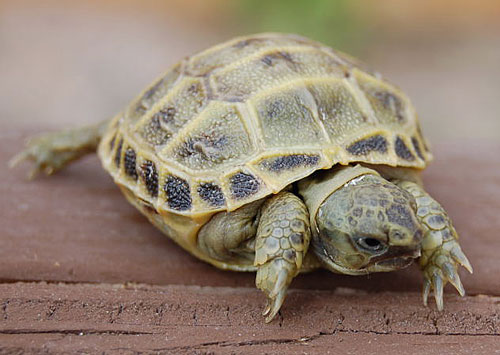
Baby Russian Tortoise Care: A Comprehensive Guide
Introduction
Russian tortoises (Agrionemys horsfieldii), native to Central Asia, are popular pets due to their hardiness and longevity. Baby Russian tortoises, also known as hatchlings, require specialized care to ensure their health and well-being. This comprehensive guide provides detailed information on every aspect of baby Russian tortoise care, from housing and feeding to health and hibernation.
Housing
Enclosure:
- Provide a spacious enclosure that allows the tortoise to move around freely.
- A 40-gallon tank or a 4′ x 2′ x 2′ enclosure is suitable for a baby Russian tortoise.
- Ensure the enclosure has secure walls and a lid to prevent escapes.
Substrate:
- Use a substrate that is safe for tortoises, such as:
- Coconut coir
- Cypress mulch
- Zoo Med Eco Earth
- Avoid substrates that can be ingested, such as sand or gravel.
Temperature Gradient:
- Create a temperature gradient within the enclosure, with a warm end and a cool end.
- The warm end should be 85-95°F (29-35°C), while the cool end should be 75-85°F (24-29°C).
- Use a heat lamp or ceramic heat emitter to maintain the warm end temperature.
Humidity:
- Russian tortoises require a humidity level of 40-60%.
- Mist the enclosure lightly once or twice a day to maintain humidity.
- Avoid over-misting, as it can lead to respiratory problems.
Lighting:
- Provide 12-14 hours of UVB lighting per day.
- UVB lighting is essential for vitamin D3 synthesis, which is crucial for calcium absorption.
- Use a UVB bulb that emits 5.0-10.0% UVB.
Feeding
Diet:
- Baby Russian tortoises are herbivores and should be fed a diet primarily consisting of leafy greens.
- Offer a variety of greens, such as:
- Dandelion greens
- Collard greens
- Mustard greens
- Romaine lettuce
- Avoid feeding iceberg lettuce, as it has little nutritional value.
Supplements:
- Supplement the tortoise’s diet with calcium powder twice a week.
- Use a calcium powder specifically formulated for reptiles.
- Avoid using calcium supplements that contain phosphorus.
Feeding Schedule:
- Feed baby Russian tortoises daily.
- Offer small amounts of food that the tortoise can finish within 15-30 minutes.
- Remove uneaten food after feeding.
Water
- Provide a shallow water dish at all times.
- Change the water daily to ensure it is clean and fresh.
- Do not place the water dish directly under the heat lamp, as this can evaporate the water too quickly.
Health
Common Health Issues:
- Respiratory infections
- Shell rot
- Metabolic bone disease
- Parasites
Signs of Illness:
- Lethargy
- Loss of appetite
- Discharge from the eyes or nose
- Soft or deformed shell
- Diarrhea
Prevention:
- Maintain proper housing and feeding conditions.
- Quarantine new tortoises before introducing them to the main enclosure.
- Practice good hygiene by washing your hands before and after handling the tortoise.
Treatment:
- If you suspect your tortoise is ill, consult a veterinarian experienced in reptile care.
- Treatment may include antibiotics, anti-parasitic medications, or surgery.
Hibernation
Preparation:
- Begin preparing the tortoise for hibernation in late summer or early fall.
- Gradually reduce the temperature and lighting in the enclosure.
- Stop feeding the tortoise 2-3 weeks before hibernation.
Hibernation:
- Provide a hibernation box filled with dry substrate.
- Place the hibernation box in a cool, dark location with a temperature of 40-50°F (4-10°C).
- Monitor the tortoise’s weight and condition during hibernation.
Awakening:
- Gradually increase the temperature and lighting in the enclosure in late winter or early spring.
- Offer the tortoise food and water once it becomes active.
Additional Care Tips
- Handle baby Russian tortoises gently and infrequently.
- Provide a hiding place for the tortoise to feel secure.
- Clean the enclosure regularly to maintain hygiene.
- Weigh the tortoise monthly to monitor its growth and health.
- Schedule regular veterinary checkups to ensure the tortoise’s well-being.
Conclusion
Baby Russian tortoises require specialized care to thrive. By following the guidelines outlined in this comprehensive guide, you can provide your tortoise with the optimal environment and nutrition to ensure its health and longevity. Remember to consult a veterinarian if you have any concerns about your tortoise’s health or well-being. With proper care, baby Russian tortoises can live long and healthy lives as cherished companions.
